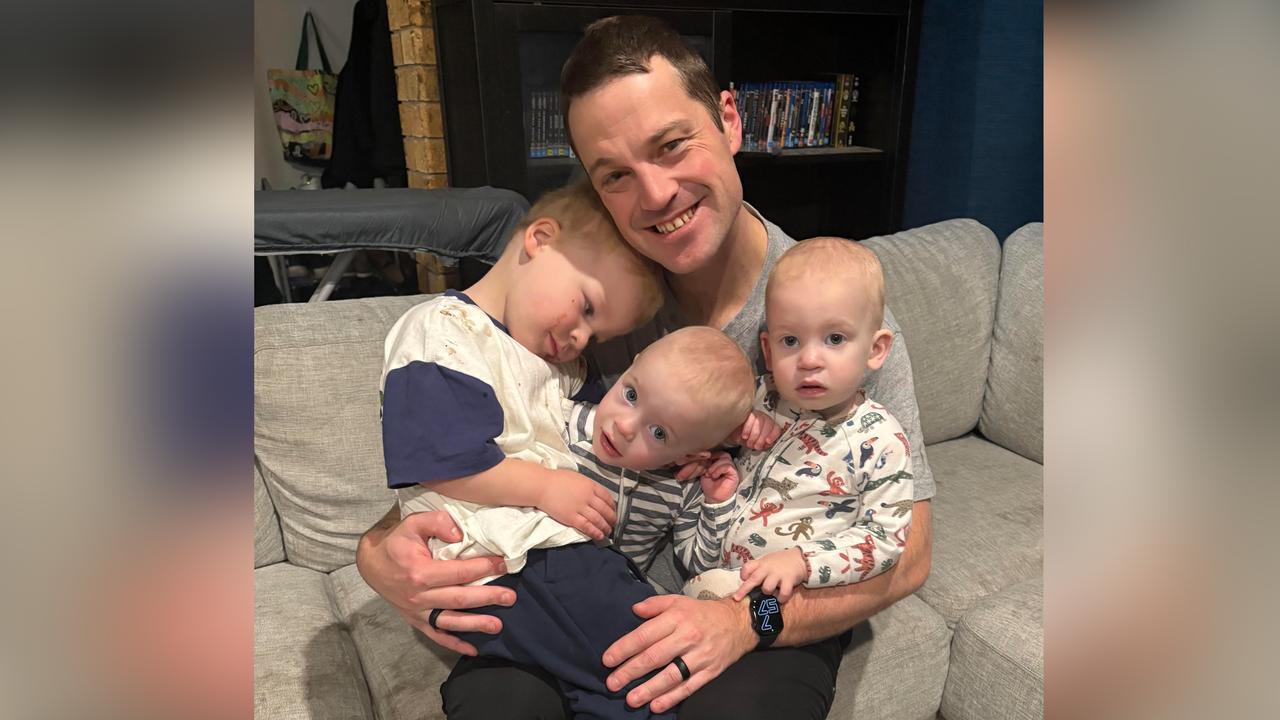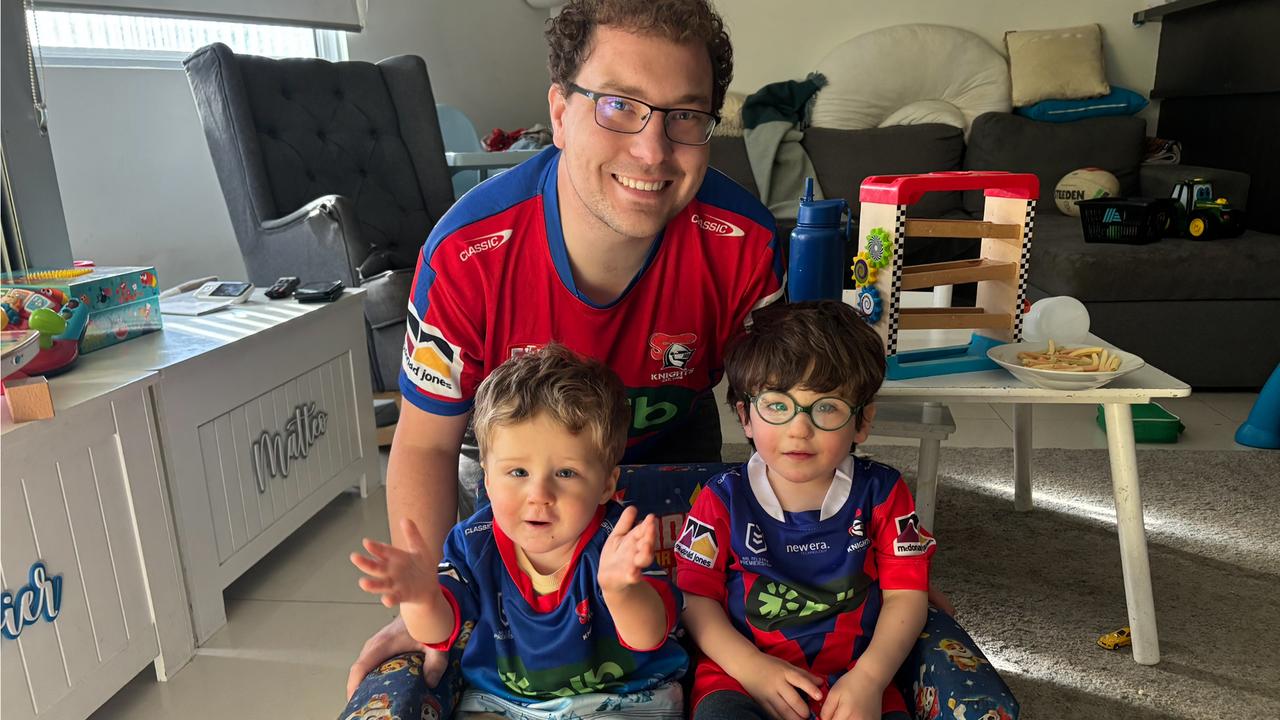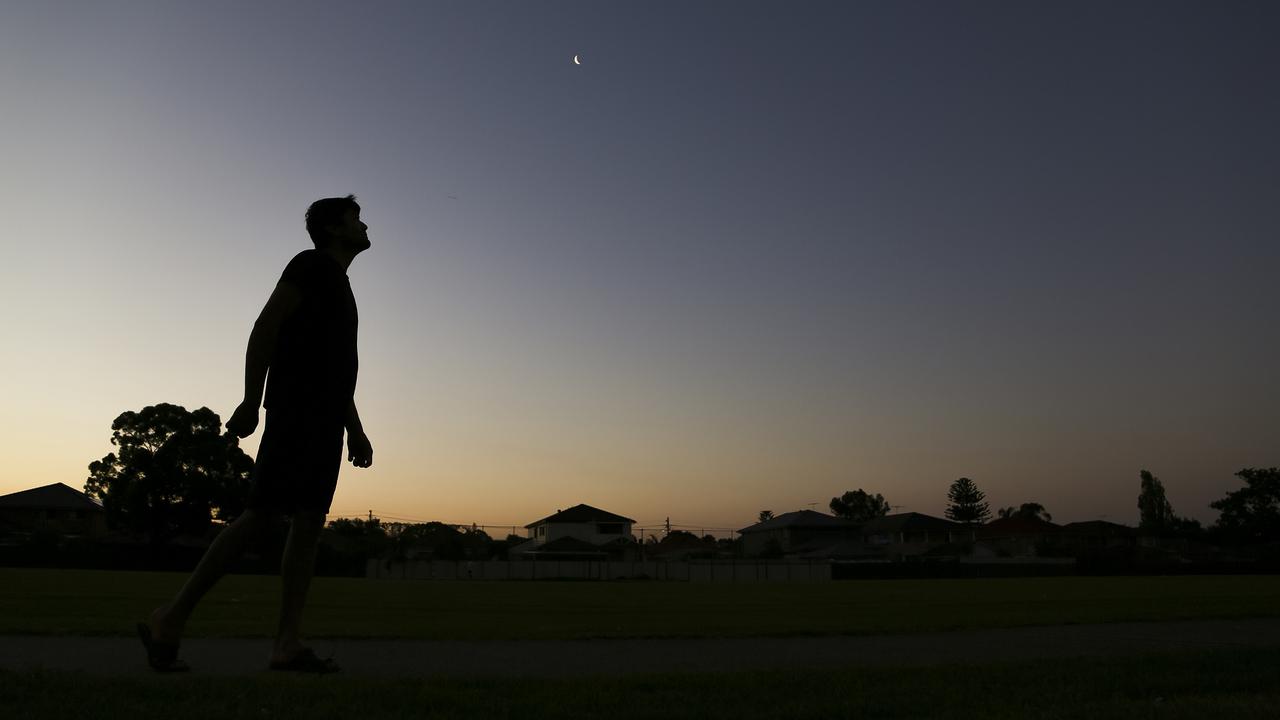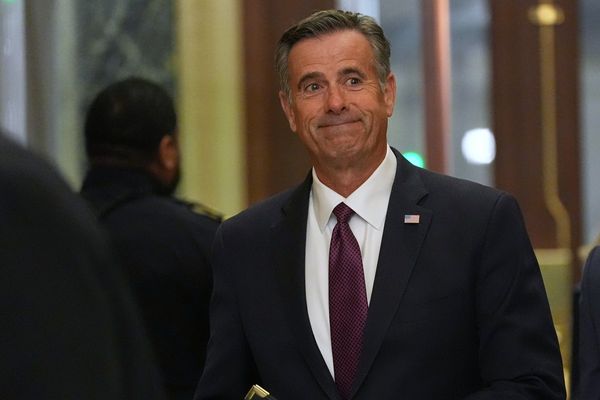Fatherhood can be a difficult reality to adjust to, yet many men suffer poor mental health in silence and are reluctant to seek help due to external pressure to be their family's "rock".
This Father's Day, dads are being encouraged to celebrate the wins of parenthood but also take the time to check in with their mental health.
One in 10 new fathers will experience perinatal depressive, anxiety, trauma or stress-related disorders associated with pregnancy or early parenthood.
Yet more than half are unsure how to access professional help.
For Luke Mac, the hardest part of fatherhood was grappling with a new identity and becoming disconnected from a career he once thought defined him.
"I've been a touring musician for a long time which is a really big part of my personality," he says.

Following the birth of his first son, he felt "bliss" and became extremely inspired to release more music.
But when his wife became pregnant with twin boys, Mr Mac started to struggle.
A high-risk pregnancy followed by an extended stay in hospital meant he took on all the caregiving for his toddler and put music aside.
"My focus needed to expand beyond myself and be the rock for my wife, the toddler and the twins," he says.
"When I started to realise these factors were affecting me and my mental health, I started to question why I would have the right to feel like that.
"I thought, 'I didn't just give birth, so I have no right to feel like this'."
Mr Mac had no idea post-partum depression and anxiety could affect men and struggled to articulate how he was feeling to his wife.
"A lot of my issues were about a loss of identity and trying to discover who I am outside of being a dad - I'm still trying to figure that out," he says.
Trent Gallucci's experience of early fatherhood was shaped by the premature arrival of his son due to placental failure.

The stress of a Neonatal Intensive Care Unit stay plus COVID lockdowns meant he and his wife were isolated from family and friends.
"My mental health really had to be put on the backburner and it wasn't until we finally got home from hospital all together that I realised something was wrong," Mr Gallucci recalls.
"I was feeding Xavier and realised I was just feeling really unhappy but there was a lot of guilt with that because I felt like I should be happy about having him home.
"I felt ashamed and like I'd failed as a dad because I didn't feel happy like I thought I would."
Eventually Mr Gallucci sought professional help from parent mental health service the Gidget Foundation.
"It's the hardest thing I've ever had to do to swallow my pride and admit that I was not okay. I felt really selfish," he says.
"I'm so glad I reached out because through speaking with the therapist I could recognise that I wasn't myself and it was a surprise to find out that so many men experience this."
Dads can often feel the societal burden that they need to be a strong family provider and that seeking help means they can't cope, says Gidget clinical team leader Mathew Aquilina.
"There's an existing body of literature around matrescence and the transition of women into motherhood but there's not as much attention on the parallel experience of patrescence," he explains.
"Men go through a similar process of transition but the way they make sense of it might be different."

Father's Day can also bring up past experiences with their own dads and childhood, Dr Aquilina adds.
"If tricky stuff comes up about what being a dad means and Father's Day is a time when that might come up, that dad might find it more triggering to manage but may not have the language to express himself," he says.
Many dads will be celebrated with millions of dollars in gifts on Sunday as ANZ forecasts spending to reach more than $610 million.
This is a 3.45 per cent increase on last year's Father's Day spending, with people looking to experiences and gifts to spoil their dads.
"We expect many dads to be spoiled with a nice dinner, some new socks or a brand new vinyl for his record player this year," says ANZ retail products acting manager director Yiken Yang.
In 2024, women outspent men on Father's Day particularly in the food, camping, music and stationary categories.
Women tend to spend more on Father's Day while men spend more on Mother's Day, the ANZ analysis found.
Lifeline 13 11 14
beyondblue 1300 22 4636







